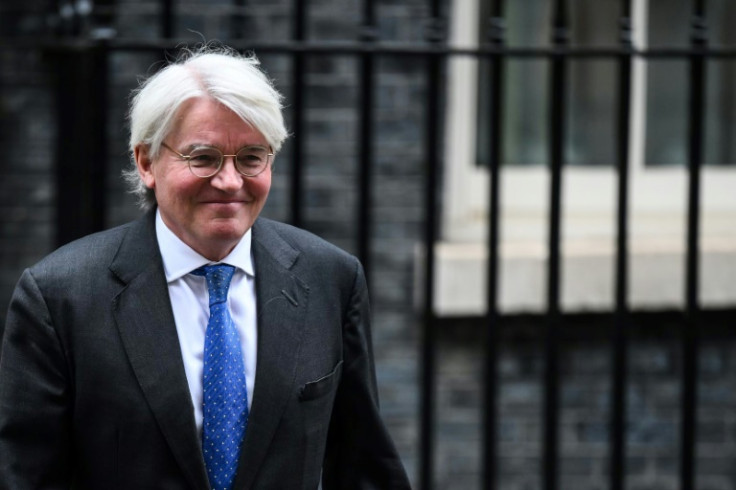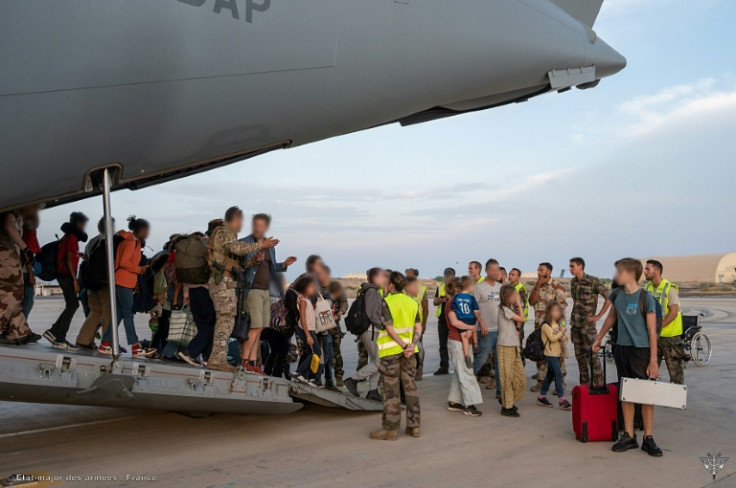UK Citizens In Sudan Say They Feel Abandoned

The UK on Monday said it was working "round the clock" to evacuate its citizens from conflict-hit Sudan, but some of those trapped complained they felt abandoned.
Britain carried out an operation on Sunday to withdraw diplomats as deadly battles rage in Khartoum, but has not announced a broader plan for its citizens in Sudan.
British citizens in Sudan and their families have complained of feeling abandoned by the government, which came in for similar criticism after the Taliban took control in Kabul in 2021.
Foreign office minister Andrew Mitchell defended that operation to extract embassy staff and their families, saying there had been a "very specific threat to the diplomatic community".
Prime Minister Rishi Sunak's spokesman confirmed that all but one of the embassy staff and dependants had been taken out of Sudan, with the other evacuated out of Khartoum.
The government is working "round the clock" to evacuate UK citizens more generally, he said, adding: "We are urgently exploring all routes for British nationals to leave Sudan should they wish to do so."
But lawmaker Tobias Ellwood, chairman of a parliamentary defence committee, called for a "clear-cut plan" to get British passport-holders out.
"If that plan does not emerge today, then individuals will then lose faith and then start making their own way back," he told the television channel GB News, saying that could lead to "some very difficult situations".
Abdelsalaam Abdelmoneim, 80, from the eastern English city of Cambridge, was stuck in Khartoum after visiting for the winter and to mark Ramadan, his son Javid Abdelmoneim told AFP.
Javid, a doctor currently working in Malawi, said that after contact with the UK authorities in which they asked if his father was ready to be evacuated, he turned down two opportunities to leave in convoys with other family members.
"My dad could have been with them. He was waiting for the British because of the phone calls that we've had from the embassy.
"It's shocking. At least the Americans said forget it, you're on your own. Good, thank you, we will make our own plans," he said.
Another British citizen told the BBC he had been forced to make his own evacuation arrangements, even as other countries got their citizens out of the country.
The man who gave his name as William said he left Khartoum on a bus arranged by his Sudanese employer because "we've had absolutely nothing but nonsense from the Government".
Another, Iman Abugarga, who is in Khartoum, said she felt "absolutely" abandoned by the UK government.
"It is shameful how they have mismanaged this situation," she told the Daily Telegraph newspaper.
Around 2,000 British passport-holders had contacted the UK authorities to register their presence in Sudan, Mitchell added.
"The situation is absolutely desperate and a ceasefire is what is required," Mitchell said, adding that the "only advice that Britain can give to people is to stay indoors because that is the safe option".
Sunak on Sunday said UK armed forces had "completed a complex and rapid evacuation of British diplomats and their families from Sudan, amid a significant escalation in violence and threats to embassy staff".
He added that the government was "continuing to pursue every avenue to end the bloodshed in Sudan and ensure the safety of British nationals remaining in the country".
UK forces undertook the military operation alongside "the US, France and other allies", according to Defence Secretary Ben Wallace.

© Copyright AFP {{Year}}. All rights reserved.





















